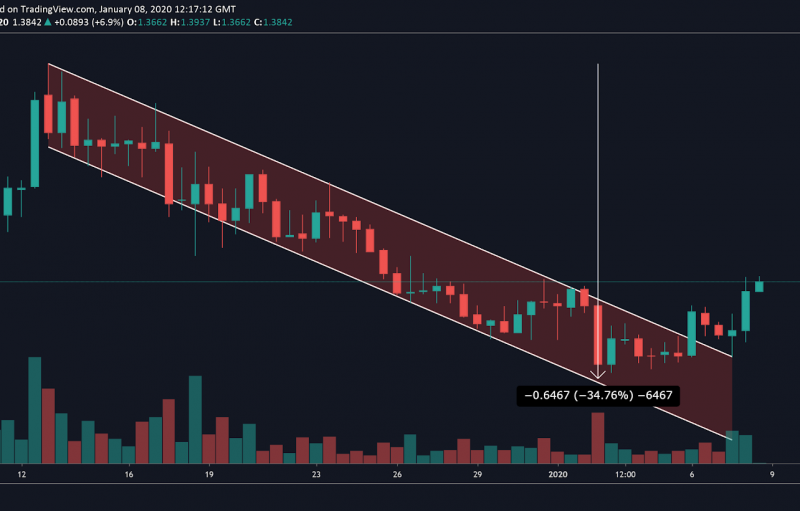The recent U.S. airstrike in Iran pushed the price of Bitcoin up 4%, along with gold and oil. Further possible conflict in the region could drive BTC’s price even higher, affirming its role as a safe-haven asset.
The U.S. Department of Defense issued a press release announcing an airstrike late Thursday that killed Qasem Soleimani, the leader of the Islamic Revolutionary Guard Corps-Quds Force, a Foreign Terrorist Organization as designated by the United States. Immediately following the strike, the price of oil and gold — traditionally seen as safe-haven investments — jumped, while traditional markets took a hit.
However, oil and gold weren’t the only assets to benefit. Within two hours of the press release, Bitcoin shot up 4.1%, from $6,945 to $7,230.
The gains seem salient, with Bitcoin trading over $7,300 at press time. The reaction from the market may reaffirm the narrative that Bitcoin acts as a “safe-haven” asset, an investment that is purchased in times of global uncertainty. Meanwhile, the S&P 500 dropped 0.98% at market open and is still down 0.51% at time of writing.
However, there are some who are still skeptical of Bitcoin’s narrative. Alex Krüger, an economist and popular Bitcoin commentator, called the relationship between the news and the price jump “absolute nonsense.” Other safe-haven assets reacted well before the Defense Department announced the news.
Gold begins to move at 8:35 p.m. ET, nearly two hours before Bitcoin
Oil moves even sooner, at 7:55 p.m. ET
That said, the difference in reaction time could stem from different levels of sophistication between the firms that trade Bitcoin and traditional assets. Commodities and stocks tend to have efficient markets around them, where firms employ advanced tools to obtain the fastest and highest quality information. In contrast, the resources available to firms trading Bitcoin pale in comparison.
As said by Tim Ireland, a quantitative financial analyst at Rotella Capital Management:
I think it’s reasonable to think that the price action seen in these assets isn’t spurious. They all experience a substantial spike in volume and correlated price action in the hours after the news breaks. Discrepancies between the exact price action might be explained by different market composition: gold and oil are both far larger markets than BTC and likely have a much more substantial institutional presence.
Until BTC grows into an asset class with a market capitalization in the trillions, it’s unlikely that the debate will be resolved.
The post appeared first on CryptoBriefing




